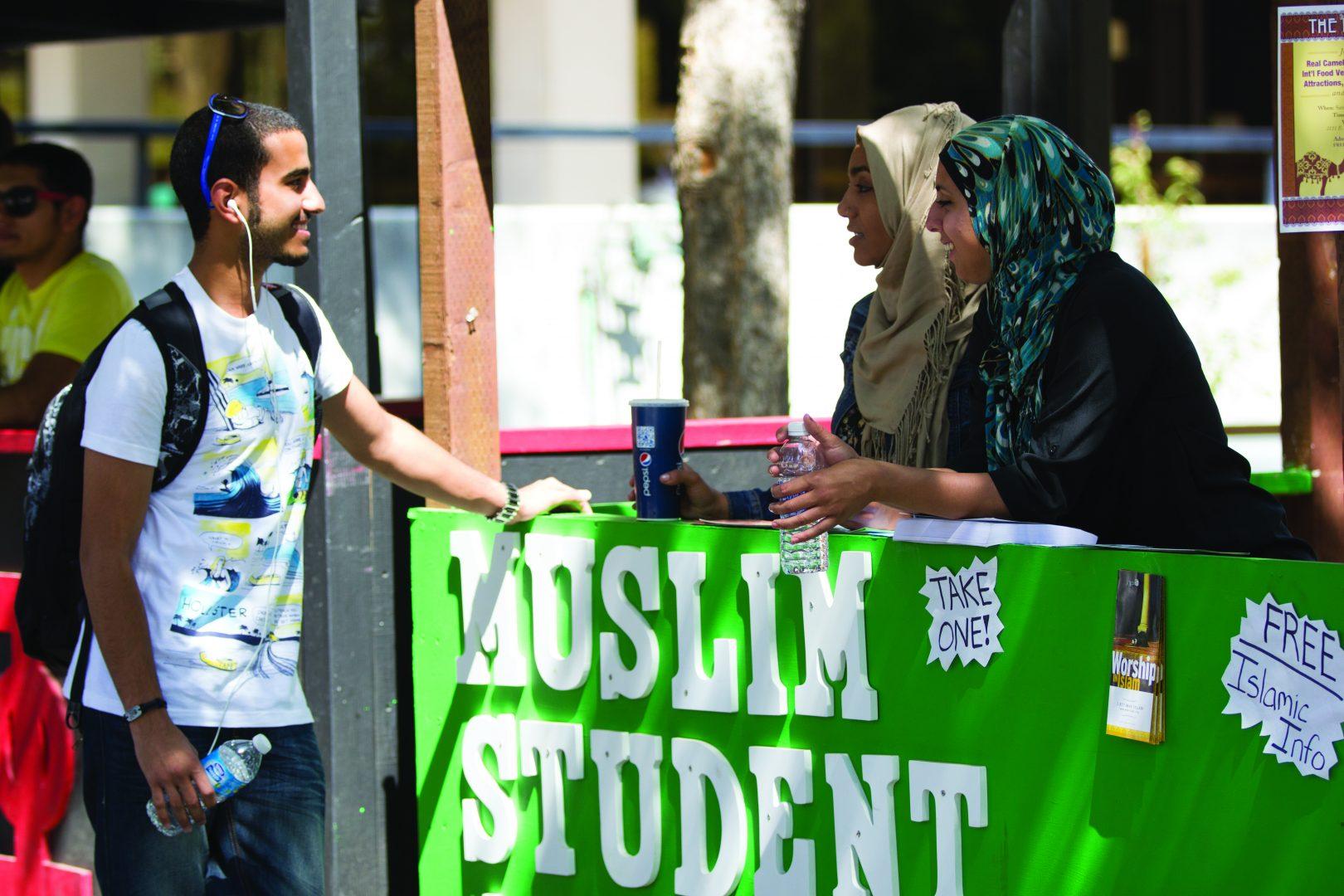Fresno State president Dr. Joseph Castro said he made the decision to excuse Muslim students from classes last Friday after he received an email from the Saudi Student Association at Fresno State asking for that action.
The email contained a forwarded message from the Saudi government which expressed concerns about the safety of Muslim students due to planned protests around the U.S.
Castro said he looked at the request and consulted with his cabinet that evening before deciding to excuse Muslim students from classes the following day.
Following the decision, the university sent the message to faculty.
When the school sent out the email, it created confusion and controversy among students and faculty last week.
“Due to potential threats, I request that Muslim students be excused from class on Friday, Oct. 9, 2015,” Provost Lynnette Zelezny said in the email, which was sent to faculty last Thursday night.
English professor Randa Jarrar sought clarification and immediately copied the entire English department, students included, in her reply.
“I am concerned about these potential threats and about the lack of information in this email,” she said. “Is this about the anti-Muslim rallies scheduled to happen over the weekend? I am worried that this email may send the message that the students themselves are a threat, when they are the ones being targeted.”
Castro later clarified the school’s intention in sending the email.
“The simple message to [faculty] was that we wanted them to excuse any Muslim students who wish to be excused the following day,” Castro said. “Some professors interpreted that to be ‘I’m canceling classes.’ That was not our intention. Our intention was to keep the campus open, but to focus on the safety of our Muslim students, who were requesting absence.”
Castro said the university will review how communication was handled last week.
“In the future we will look at how we can enhance our communication with faculty and staff,” Castro said.
Students also wondered why the email was not sent to students and why the entire campus was not closed.
“That’s a decision I made after consulting with my colleagues,” Castro said. “That was not the right approach for this particular circumstance. The right approach was to focus on those who requested absence for their safety.”
Castro added that he is not aware of any threats made locally against Muslims, and he is not aware of any other universities in the country who excused Muslim students because of threats.
But Castro received support from at least one local organization.
“We received encouragement from one mosque to excuse Muslim students from class,” Castro said. “It was the students that we were listening to and the government supporting the students, as well as the community. We made the decision based on the information we had at the time.”
Hussain Al-Ghobari, a member of the Saudi Student Association, said there are many families and friends in Saudi Arabia who worry about loved ones in the U.S. because of threats.
Al-Ghobari said Castro’s decision was necessary to keep students safe and to ease the anxiety of loved ones in Saudi Arabia.
Al-Ghobari often gets calls from his family who worry about his safety.
“When they hear anything in the U.S., they call me,” he said. “They say, ‘What’s going on?’ ‘Are you safe?’”
Al-Ghobari has been in the U.S. for 10 years. He said he understands there are potential threats for Muslims in the U.S., but there are younger students who are unaware of the dangers.
“Some of them are out of their country for the first time,” he said. “It was very good that [the school] sent the email to remind them. We have a lot of appreciation to the school who allowed them to stay home.”





